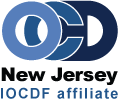Jennifer Gola, Psy.D. Presented on
“You Want Me to Do What?”
Ethical Considerations in the Treatment of OCD
by Rachel Strohl, Psy.D.
On Monday September 21, 2015, Jennifer Gola, Psy.D. presented at the quarterly meeting of OCD New Jersey (OCDNJ). Dr. Gola is a postdoctoral fellow at The Center for Emotional Health of Greater Philadelphia. She specializes in the treatment of OCD, anxiety disorders, trichotillomania, and other body focused repetitive disorders in children, adolescents, and adults. Dr. Gola received her B.A. in psychology at the University of Delaware and her Psy.D. in clinical psychology at LaSalle University. She received specialized training in the treatment of OCD at the Center for the Treatment and Study of Anxiety (CTSA) and the COTTAGe group at the University of Pennsylvania. She has written about the treatment of OCD for About.com, and has recently published an article on the ethics of exposure therapy with children in the journal Cognitive and Behavioral Practice.
Dr. Gola stated that we know exposure and response treatment (ERP) works well for OCD, but negative views and myths about the treatment are prevalent. These myths contribute to the underutilization of an effective therapy and, at times, decreased effectiveness. In this presentation, she reviewed common ethical concerns of patients and therapists and discussed specific strategies to prevent ethical issues in ERP.
Informed Consent: “What am I getting myself into?”
Before treatment, therapists should provide the rationale for exposure therapy. Questions should be encouraged, and analogies are useful to explain OCD and its treatment. Patients are always in control of treatment, and consent is ongoing. Dr. Gola emphasized that it is important for therapists to validate that treatment can be hard and scary, and for therapists to build motivation for treatment.
Competence: “Does my therapist know what s/he is doing?”
There are nuances of ERP that can lead untrained therapists to provide ineffective therapy; therefore, it is important therapists have an understanding of the rationale of ERP through trainings from experts in the field. The therapist should have good experience using the treatment or receive supervision by an experienced exposure therapist. Common pitfalls in therapy might include: 1) not challenging enough/ or overusing distraction, 2) challenging too much too early, 3) not catching mental rituals, 4) providing reassurance, and 5) not thinking through logistics.
Beneficence and Nonmaleficence: “Is this even safe?”
Contrary to “popular belief,” ERP does not cause harm but establishes a situation in which patients fear harm will occur. It is important for therapist to maximize benefits and minimize risk with the following: 1) planning should be collaborative, 2) choosing known situations over unknown (e.g., YouTube), 3) consider outcomes before exposure, and 4)anticipate exposures sometimes go different than planned. Dr. Gola discussed how to maximize success for the first exposure, going up the hierarchy (“challenging but feasible”), and at the top of the hierarchy. There was an interactive discussion with the audience about whether some exposures can go “too far.”
Confidentiality: “What if I see someone I know?”
Exposure therapy can require out of office exposures, and this may result in others identifying a patient in therapy. The following suggestions were offered to minimize risk: 1) discuss concerns prior to exposure, 2) remove staff badges, ties, coats, etc. 3) refrain from tracking SUDS (0-10 scale), 4) develop a cover story, and 5) go to a different neighborhood.
Boundaries: “My therapist is coming over?”
Dr. Gola concluded the thought provoking presentation by explaining boundaries can become “fuzzy” when doing out of office exposure. Boundary crossings can be appropriate, such as if a therapist needs to do driving exposure or go to a patient’s “contaminated” house. A boundary crossing is different than a boundary violation if it’s agreed upon, beneficial for the patient, and based on sound judgment.
DVDs of this presentation are available for purchase by emailing ocdnjmail@gmail.com. All DVD titles from previous meetings are available on our website, www.ocdnj.org.
Dr. Rachel Strohl is a licensed psychologist at Stress and Anxiety Services of NJ in East Brunswick. She is on the Board of Directors at OCD New Jersey. She may be reached at 732-390-6694.
